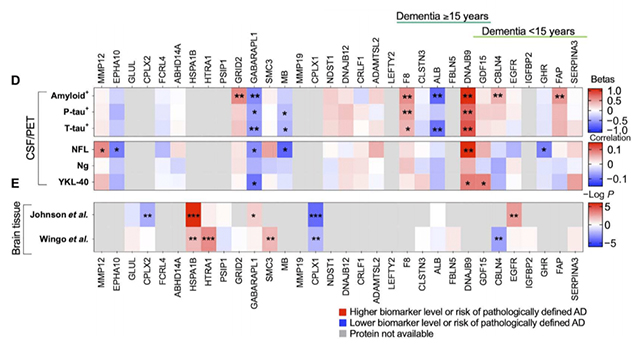The earlier that Alzheimer's disease and other similar conditions can be spotted, the better the treatment options are, and scientists have discovered a blood biomarker that could signal the risk of dementia many years in advance.
A team from the National Institute on Aging, the University of Texas, and the Johns Hopkins Bloomberg School of Public Health in the US, as well as other institutions across the world, looked at data on 10,981 individuals collected across the course of 25 years.
In particular, the researchers analyzed the proteome of these individuals: the complete set of proteins expressed in a body, driving all kinds of biological processes from cell communication to hormone levels.

The analysis revealed 32 proteins that, when found at unusually high or low levels in the blood in people aged 45 to 60, were associated with an increased risk of developing dementia later in life.
"The present study leveraged data from multiple cohorts to identify and characterize 32 proteins and 4 protein networks in plasma of middle-aged adults that were strongly associated with dementia risk in subsequent decades," write the researchers in their published paper.
This study doesn't go as far as to look at why these protein imbalances are linked to dementia risk, but they could help scientists more accurately assess dementia risk in older adults.
Interestingly, many of the proteins weren't directly involved in the functioning of the brain. That backs up previous research showing that the onset of dementia and its underlying triggers aren't something that happens exclusively in the brain.
Several of the identified proteins were linked to proteostasis, or the healthy regulation of the proteome. This process helps prevent the protein clumps that are found in the brains of people who have developed Alzheimer's.
Other proteins played key roles in the immune system, perhaps showing that there's something about an immune system reaction or failure that increases the chances of dementia starting to take hold in the brain.
There's still a long way to go with this research, but eventually we may get to the stage where blood can be tested for signs of dementia risk. If those signs are caught earlier, personalized treatments can be put in place.
Further down the line, we might one day fully understand how conditions like Alzheimer's disease get started, and that revelation could well come by watching for imbalances and abnormalities outside of the brain.
"We're seeing so much involvement of the peripheral biology decades before the typical onset of dementia," neuroscientist Keenan Walker, from the National Institute on Aging, told Nature.
The research has been published in Science Translational Medicine.
